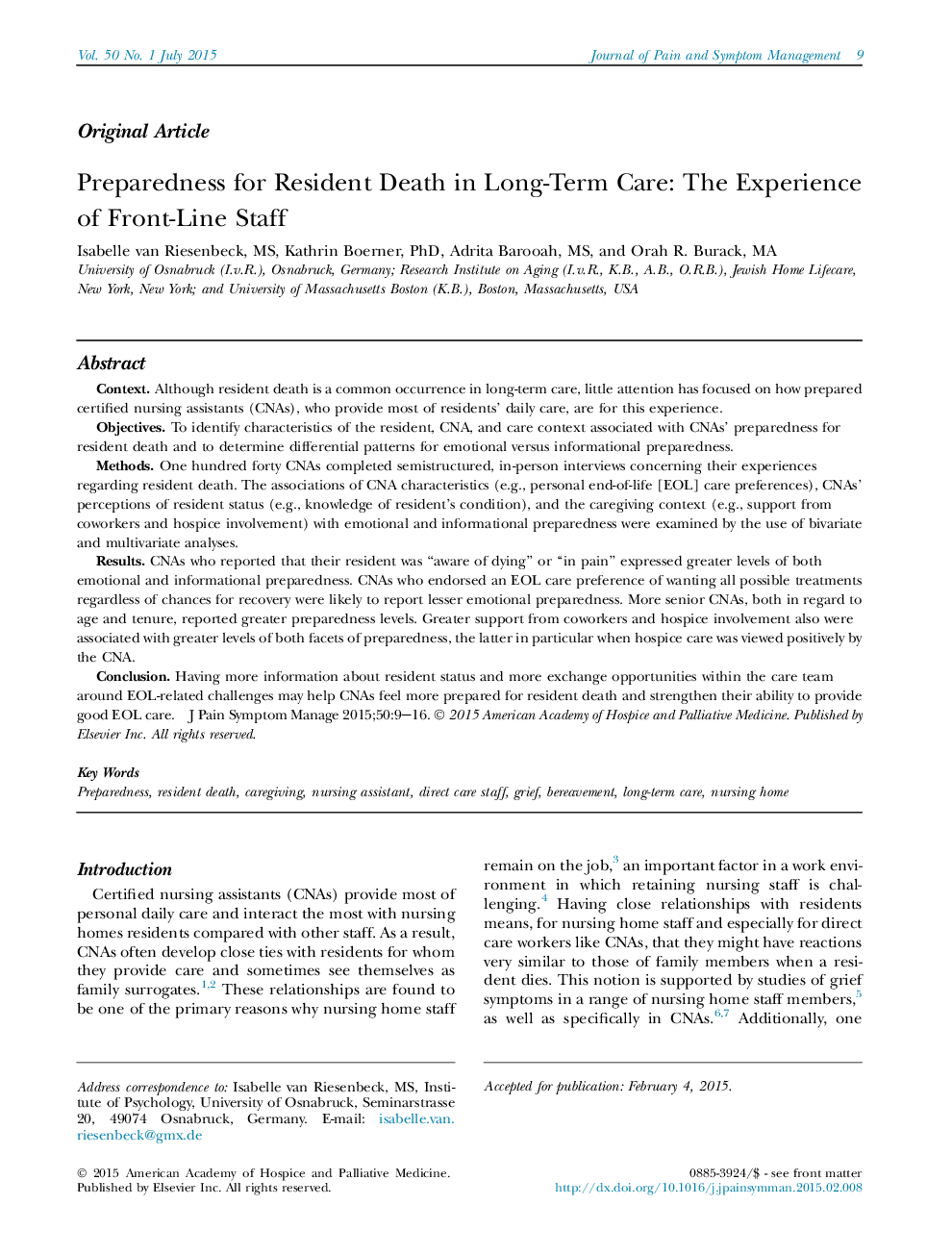| Article ID | Journal | Published Year | Pages | File Type |
|---|---|---|---|---|
| 5879684 | Journal of Pain and Symptom Management | 2015 | 8 Pages |
ContextAlthough resident death is a common occurrence in long-term care, little attention has focused on how prepared certified nursing assistants (CNAs), who provide most of residents' daily care, are for this experience.ObjectivesTo identify characteristics of the resident, CNA, and care context associated with CNAs' preparedness for resident death and to determine differential patterns for emotional versus informational preparedness.MethodsOne hundred forty CNAs completed semistructured, in-person interviews concerning their experiences regarding resident death. The associations of CNA characteristics (e.g., personal end-of-life [EOL] care preferences), CNAs' perceptions of resident status (e.g., knowledge of resident's condition), and the caregiving context (e.g., support from coworkers and hospice involvement) with emotional and informational preparedness were examined by the use of bivariate and multivariate analyses.ResultsCNAs who reported that their resident was “aware of dying” or “in pain” expressed greater levels of both emotional and informational preparedness. CNAs who endorsed an EOL care preference of wanting all possible treatments regardless of chances for recovery were likely to report lesser emotional preparedness. More senior CNAs, both in regard to age and tenure, reported greater preparedness levels. Greater support from coworkers and hospice involvement also were associated with greater levels of both facets of preparedness, the latter in particular when hospice care was viewed positively by the CNA.ConclusionHaving more information about resident status and more exchange opportunities within the care team around EOL-related challenges may help CNAs feel more prepared for resident death and strengthen their ability to provide good EOL care.
